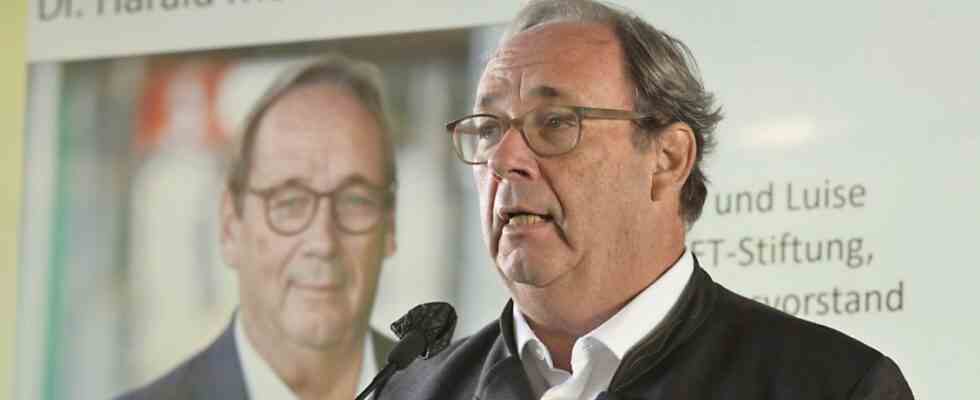On the area of the composting plant in Kirchstockach no central warehouse with administration rooms for the building material dealer Kraft should be built. This was confirmed by Harald Mosler from the board of directors of the SZ Josef and Luise Kraft Foundation. The foundation submitted the project-related development plan on January 1 of this year and withdrew it this week. The numerous imponderables in connection with the property in Brunnthal’s Kirchstockach district were decisive for this decision.
The location as such is wonderful, among other things because of its proximity to the freeway, said Mosler. However, the current access road from Taufkirchner Straße leads past the gravel works and concrete production on the Ganser site. This private road is closed to traffic at night, which is hardly compatible with the Kraft-Baustoffbetrieb. From the start, Mosler had pushed for a separate driveway from the south, for which three private owners would have to trade lots. Negotiations stalled with at least one.
Nevertheless, Brunnthal’s Mayor Stefan Kern (CSU) recently expressed his confidence that an agreement could be reached. Finally, the residents of the Ganser site, on which the biowaste reloading point is located next to the disused fermentation plant and the geothermal power plant of Stadtwerke München (SWM), would also be relieved of traffic.
Another problem for the Kraft logistics hall is the high-voltage line in the vicinity of the planned property. The hall was planned with green roofs and facades as well as photovoltaic panels and would also have had ecological niches on the building in animal-added design. However, the power line could disrupt the purely radio-based merchandise management system for the building materials to be loaded. “We deal with goods worth 190 million euros a year and had problems at another location because of such a power line,” says Mosler.
“We poured a lot of heart and soul into it, the community of Brunnthal was very friendly and supported us.”
The Kraft Foundation is still looking for a suitable location. However, that is very difficult because everything is reserved in the communities around Munich, so to speak, when it comes to logistics, says Mosler. “We poured a lot of heart and soul into it, the community of Brunnthal was very friendly and supported us,” is his summary. However, as the board of directors of the foundation, he had to be careful with his members and could not take such a recognizable risk as the various imponderables involved in the project.
For the municipality of Brunnthal, the withdrawal of Kraft means “that the composting plant will initially continue to be operated, but that other uses will probably be considered again,” says Mayor Kern. Matthias Ganser from the family that owns the property takes a similar view and adds that the approval of the composting plant also applies to waste wood processing and a waste wood treatment plant: “We will work together to ensure good further development of the site – especially for the energy and heat transition and for climate protection with the district, the municipality and the citizens, to promote joint development on site.”
Stadtwerke München (SWM), which operates one of its three geothermal plants in the district right next to the composting plant, sees no change in the situation as a result of Kraft’s withdrawal: “SWM’s expansion plans to create a second drilling duplicate in Kirchstockach by 2025 were with the owners and the construction plans of the Kraft company,” says Christian Pletl, who is responsible for geothermal projects at SWM.

